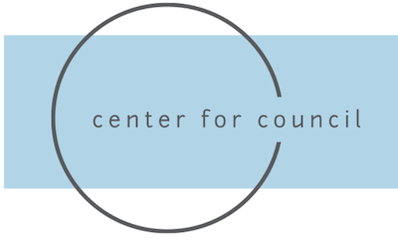Peace Officer Wellness, Empathy & Resilience
Frequently Asked Questions
Personal and Cohort IDs
WHAT IS A PERSONAL ID?
Personal ID's are a string of letters and numbers that we use to track participation in the self-guided portions of the program that we can then match up with the surveys done at the beginning, middle and end of the whole program. Using a personal ID that only you know allows us to do this without ever requiring that you log into anything. That means no remembering passwords, and no unnecessary emails from third-party providers.
We use them to avoid problems associated with data theft. Since the questions asked in the reporting form are quite generic (which was on purpose), the database will never hold any personal information worth stealing.
But that requires that you always provide your Personal ID, Cohort ID, and Week information every time you report. Your Personal ID will also be used for you to view your progress.
We use them to avoid problems associated with data theft. Since the questions asked in the reporting form are quite generic (which was on purpose), the database will never hold any personal information worth stealing.
But that requires that you always provide your Personal ID, Cohort ID, and Week information every time you report. Your Personal ID will also be used for you to view your progress.
HOW DO I PICK A PERSONAL ID?
Your Personal ID is a unique four-digit code comprised of the following:
- First letter in your mother's first name (if not applicable use A)
- First letter in your father’s first name (if not applicable use Z)
- Last digit in your birth year (e.g. 5 for 1975)
- Number of older siblings
WHAT IS A COHORT ID?
We use a cohort ID so that we can track the progress of your entire training group. It also serves the purpose of double-checking the accuracy of your personal ID. If you mistype your personal ID on any report, we should be able to find and fix it later because of the cohort ID.
Cohort IDs are purposely simple so that you can remember them easily. They are typically two letters (representing your agency) and two numbers (reflecting your cohort number within your agency).
Cohort IDs are purposely simple so that you can remember them easily. They are typically two letters (representing your agency) and two numbers (reflecting your cohort number within your agency).
Reporting on Progress
HOW DO I REPORT? WHEN SHOULD I REPORT?
At the top of every email, there is a green button asking that you "Report on the Last Week and Assignment." Follow that link and it will take you to this page.
WHEN SHOULD I REPORT?
Ideally, you will report on the prior week as soon as you receive the next email, or sometime that day.
HOW LONG SHOULD MY ANSWERS BE?
Your answers can be as long or short as you'd like, but completing the form should take you no more than 2-3 minutes.
WHAT IF I MISS AN ASSIGNMENT OR FORGET TO REPORT?
We obviously prefer that assignments are done during the week they are assigned, and reported on at the end of that week. Stacking assignments to do all at once generally eliminates much of the value of program, where we discuss the value of creating a regular habit of mindful practices.
But if you don't have time or forget to do the assignment, find the email containing it and complete it as soon as you are able. When reporting that you have completed it, however, please ignore the questions about your activity during the last week (except as it pertains to the assignment).
But if you don't have time or forget to do the assignment, find the email containing it and complete it as soon as you are able. When reporting that you have completed it, however, please ignore the questions about your activity during the last week (except as it pertains to the assignment).
HOW DO I VIEW MY PROGRESS REPORT?
You can follow the link in every email, or you can go here. Enter your Personal ID and all of your previous reports will be shown.

